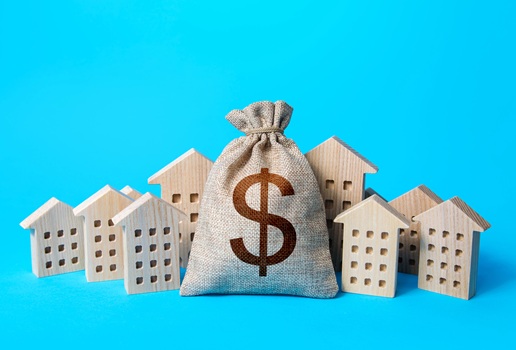
When you’re looking to expand your investment portfolio, commercial real estate loans can open the door to bigger and more profitable opportunities. Whether you’re planning to purchase a retail center, office building, apartment complex, or even a mixed-use property, the right financing strategy can make all the difference. The process might seem intimidating at first, especially if you’ve only handled residential real estate before. But with the right guidance, these loans can help you scale with confidence.
This blog is for new and experienced investors who want to understand how commercial real estate loans work, when to use them, and how to make them work in your favor.
Why Consider Commercial Real Estate Loans for Your Next Investment?
Securing commercial real estate loans allows you to leverage capital and increase your buying power. Instead of tying up your entire savings in one property, you can spread your funds across multiple investments while using borrowed money to finance your deals. This not only helps you grow faster, but also leaves room for operating costs and property improvements.
Compared to residential loans, commercial financing typically comes with different terms, qualification requirements, and risk levels. You’ll need to think strategically, but the upside can be substantial if you get it right.
Types of Properties You Can Finance with Commercial Real Estate Loans
Meanwhile, commercial loans are designed for income-generating properties. That includes retail spaces, office buildings, industrial warehouses, and large-scale apartment complexes. Even self-storage units, medical buildings, and restaurants fall under this category.
Many investors use these loans to:
- Buy their first commercial space
- Expand a current investment portfolio
- Renovate underperforming properties
- Refinance existing loans with better terms
If the property generates cash flow, a commercial real estate loan in Boston MA is likely the path forward.
How Do Commercial Real Estate Loans Work?
Commercial loans function differently from residential ones. They often require a larger down payment, shorter loan terms, and may include balloon payments. Lenders assess both the borrower’s financial health and the property’s income potential.
Loan-to-value ratios usually sit between 65% and 80%, meaning you’ll need to cover the remaining portion with equity. Interest rates can also vary based on the loan type, term length, and market conditions. Unlike home loans, commercial loans are often backed by the income the property generates rather than just your personal income or credit score.
Preparing to Apply for Commercial Real Estate Loans
You’ll need to gather specific financial documents to qualify for financing. Most lenders require:
- A business plan or investment strategy
- Tax returns (business and personal)
- Bank statements
- A rent roll or income projection for the property
- A purchase agreement or letter of intent
- Property appraisals and inspections
A strong credit profile and track record will certainly help, but lenders will also focus on the property’s ability to generate revenue. If the investment looks promising and your financials are in order, approval is far more likely.
What Are the Benefits of Financing Your Investment?
Using commercial real estate loans can increase your return on investment. By borrowing to acquire a larger or better-located property, you increase your potential rental income and long-term equity growth. You also keep more cash on hand, which can be used for upgrades, repairs, or even another investment.
With the right loan structure, you may also be able to deduct interest payments and other related expenses at tax time, improving your bottom line.
Risks to Keep in Mind Before You Borrow
Of course, every financial move carries some level of risk. Commercial properties can sit vacant longer than residential homes, and maintenance costs can add up quickly. If your tenants leave or business slows down, repaying the loan might get tricky. That’s why planning, forecasting, and cash reserves are essential.
Some investors jump in too quickly without analysing the long-term cost of the loan or its impact on cash flow. Always review your numbers carefully, and don’t hesitate to work with a financial advisor or commercial broker.
How a Commercial Real Estate Loan Can Fit Into a Long-Term Strategy
If your goal is to build a thriving property portfolio, commercial real estate loans can help you do it without waiting years to save up capital. You can move quickly on time-sensitive deals, reposition outdated properties, or simply diversify the types of buildings you own.
Let’s say you’ve owned two small rental houses for several years. They generate decent income, but growth feels slow. With commercial financing, you could use the equity in those homes as leverage to buy a small retail plaza or 12-unit apartment building. That single move could double or triple your income potential without selling anything you already own.
FinanceBoston, Inc. can assist you in navigating your options and tailoring a lending solution that aligns with your investment timeline and growth goals.
Questions to Ask Before Taking Out a Loan
Before signing anything, ask yourself:
- How long do I plan to hold this property?
- What’s my backup plan if the property remains vacant longer than expected?
- Can I handle the maintenance costs, taxes, and insurance over time?
- Is this the right moment to expand, or would it be better to wait?
Answering these questions can save you a lot of stress and help you stay clear-headed through the process.
Call FinanceBoston, Inc. now to speak with a commercial loan expert who can help you make sense of your options and guide you through the application process. Whether you’re buying your first building or scaling up a growing portfolio, the right loan could be your key to long-term financial growth. Let’s build something that lasts.
FinanceBoston, Inc.
33 Broad Street
Boston, MA 02109
617-861-2041
https://financeboston.com/


No comments:
Post a Comment